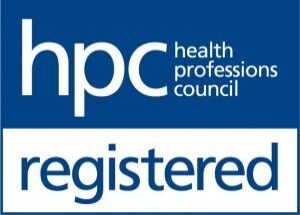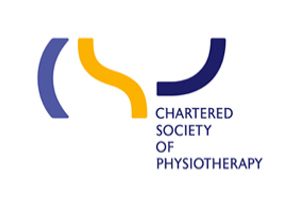
posted 24th October 2024
Living with Arthritis: Physiotherapy Strategies for Better Joint Health
WHAT ARE THE TYPES OF ARTHRITIS?
Arthritis can affect anyone, at any age. It is a common condition affecting the joints, it often causes pain and inflammation.
There are many types of arthritis and symptoms experienced will vary depending on the condition a person has. Often arthritis is characterised by pain and stiffness in the joints, leading to reduced mobility. This can significantly impact someone quality of life, can lead to weight gain, cardiovascular disease and mood changes, which is why early, effective treatment is important. This blog will explore some of those treatment options.
Osteoarthritis is the most prevalent form of arthritis and is primarily a degenerative joint disease. It most commonly affects the knees, hips, hands and spine. It is more common in those who are female, mid-40’s and older and those with a family history. It is not uncommon to go on to develop arthritis after an injury to a joint and can be related to other conditions such as gout or rheumatoid arthritis.
Between bones, there is cartilage which acts as a shock absorber, as this gets rough and starts to thin out, tendons and ligaments have to work harder. Small bony spurs can develop, called osteophytes.
Rheumatoid arthritis is an autoimmune condition where the body’s immune system attacks the joints. Often multiple joints are impacted at once and it often presents with fever and fatigue. It is also more common in women than men. It often starts between the age of 30 and 50.
Other types of arthritis and related conditions include: gout, cervical spondylosis, psoriatic arthritis, reactive arthritis and enteropathic arthritis.
HOW CAN I HELP MYSELF?
Pain management: Treatments such as hot or cold therapy, acupuncture and electric stimulation may help relieve pain. GP’s and Pharmacists may prescribe medications or topical creams to help reduce pain.
Smart equipment: Smart watches are able to track walking, physical activity, energy and sleep, which can provide a healthcare team with real-time feedback, making monitoring progress much easier.
Nutrition: It is important to eat a balanced diet and keep well hydrated to support with management of arthritis. To find out more about supplements, speak with your pharmacist or GP.
Stress management: Practices like mindfulness and meditation can help manage stress, which can worsen pain levels.
Generic free education and exercise programmes:
Let's Move with Leon | Versus Arthritis
Versus Arthritis and Sports England have created a 12 week programme of 30-minute movement sessions. The classes are a holistic, full-body programme that will improve strength, flexibility and cardiovascular fitness. You don’t need any special gear, and there’s no cost.
NHS | Escape Pain
The NHS have created an app called, which is a programme that completes and series of tests and exercises to perform at home.
HOW CAN PHYSIOTHERAPY HELP?
Education: Understanding your condition, which activities to push through and which to pull back on, pain management strategies and healthy lifestyle tips all play important roles in arthritis management.
Exercise: The NICE guidelines recommends regular exercise as a core treatment for osteoarthritis. Often low-impact exercises are the preferred option. It is important for maintain a healthy weight and maintaining joint function. As people compensate to offload a painful joint, it is not uncommon for the body to become a little out of balance. A Physiotherapist is able to tailor a programme to help improve strength, balance, flexibility and endurance.
Hydrotherapy: Exercise in water is helpful as it offloads the weight of the body. At hip height, 50 % of the body weight is offloaded, at neck height, 90% of the body weight is offloaded.
Manual therapy: Soft tissue massage and joint mobilisations can help reduce pain and improve joint range.
Equipment: In some cases, walking aids and supports such as braces and orthotics might be helpful to reduce joint stress and improve mobility. It is important that you are assessed by a professional for these and don’t wear them without the appropriate guidance.
DO I NEED SURGERY?
Not everyone with arthritis will need surgery, but a review by a specialist in arthritis can guide you at to whether this is appropriate. For the right person, surgery can reduce pain and improve mobility. See our blog for what to expect after surgery Blog.
THE FUTURE:
The future of arthritis management is promising, due to extensive research and technological advancements. The guidelines currently do not support stem cell therapy or platelet rich plasma however, research in these areas are promising.
CONDITIONS WE TREAT:
We understand that our clients often have a range of medical conditions. Our therapists have a broad range of backgrounds. For example, someone who has an physical injury, may also benefit from input from another health professional. Find a list of our approved partners here:
Booking an appointment
If you would like to find out more about Estuary Physios musculoskeletal service, please get in touch with us today and speak with one of our clinicians.
Medical Review
The information on this page has been reviewed for accuracy by Barry Ford BSc MCSP, Physiotherapist





